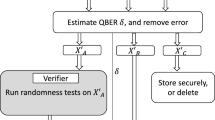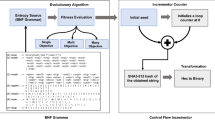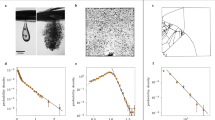Abstract
IN the first sentence of Lord Cherwell's communication1 occurs the phrase “a number chosen at random”; and the applicability of the theory of probability surely depends on the possibility of random choice. Now an integer can be chosen at random from any finite set, but there is no way of choosing one at random from the infinite set of all positive integers. Thus if Lord Cherwell chooses an integer “at random” it will certainly be less than as otherwise he will not live long enough to write it down. But the probability that an integer chosen at random is less than is zero.
This is a preview of subscription content, access via your institution
Access options
Subscribe to this journal
Receive 51 print issues and online access
$199.00 per year
only $3.90 per issue
Buy this article
- Purchase on SpringerLink
- Instant access to the full article PDF.
USD 39.95
Prices may be subject to local taxes which are calculated during checkout
Similar content being viewed by others
References
NATURE, 148, 436 (1941).
Author information
Authors and Affiliations
Rights and permissions
About this article
Cite this article
HALDANE, J. Number of Primes and Probability Considerations. Nature 148, 694 (1941). https://doi.org/10.1038/148694a0
Issue date:
DOI: https://doi.org/10.1038/148694a0
This article is cited by
-
Properties of Cuticle and Insect Ecology
Nature (1942)



